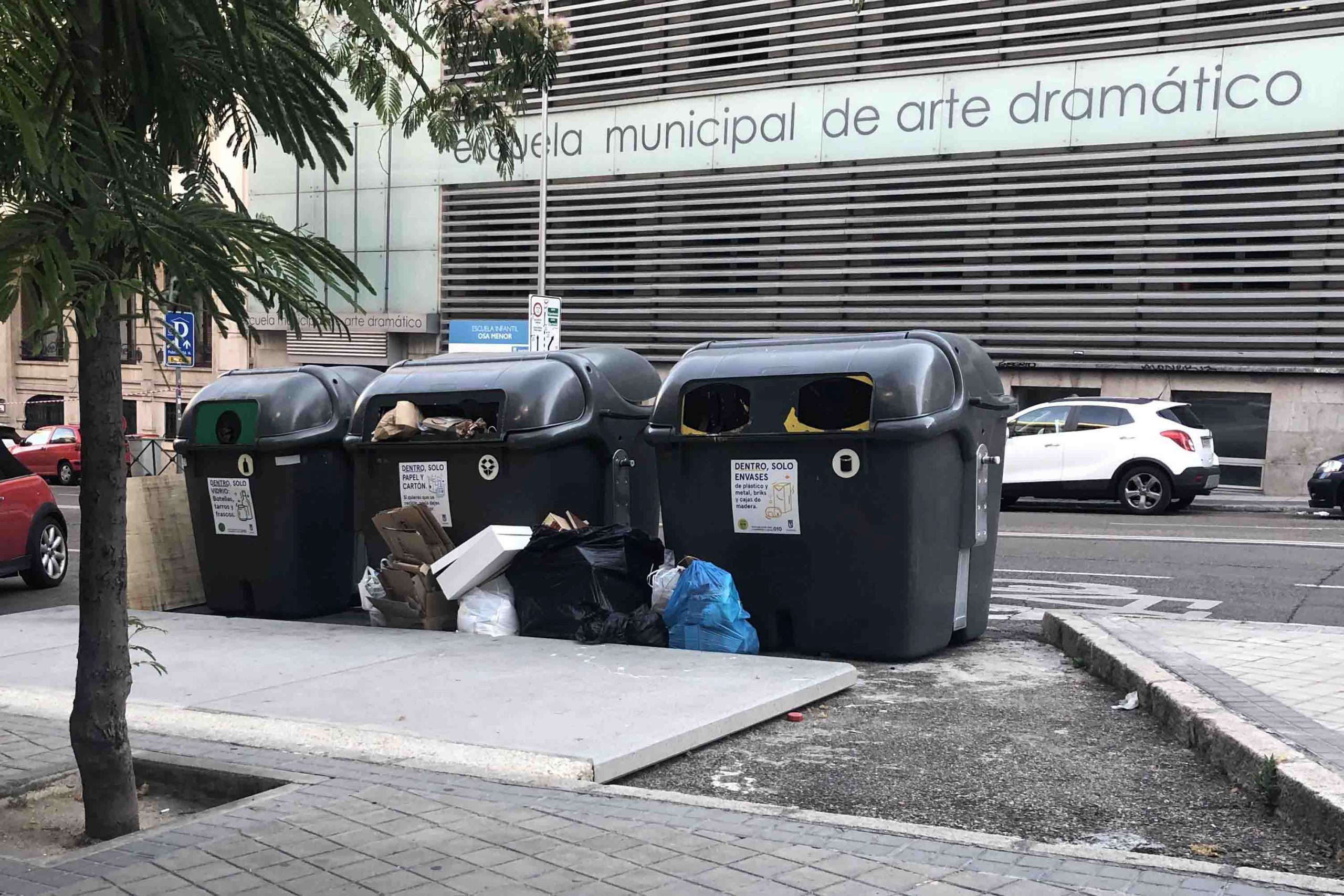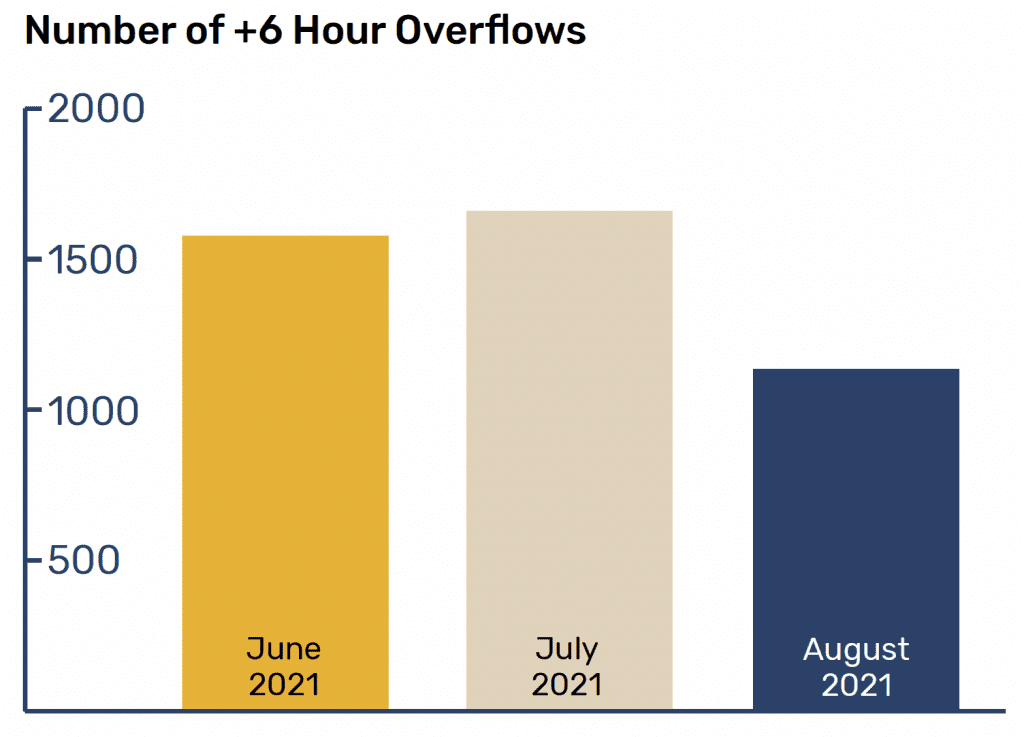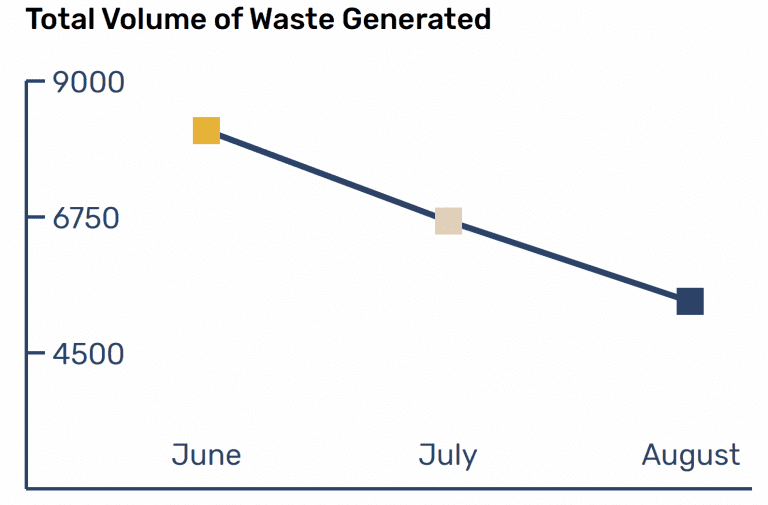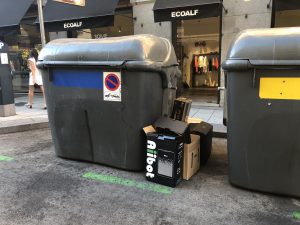Madrid: Eliminating Overflowing Waste with Reliable and High-Quality Data
The second largest city in the EU, the City of Madrid, is responsible for collecting and disposing of waste for its 3.4 million residents. The Madrid City Council (Ayuntamiento de Madrid) is responsible for the government and administration of the municipality – including waste collection, which is divided into three zones across the city.
Objectives
- Reduce overflowing waste
- Optimize collection services
- Gain transparency around the efficiency of outsourced waste services

Madrid's Problem with Overflowing Bins
An aspiring smart city, Madrid is keen to find citizen-centric and data-oriented solutions to improve the quality of life in its urban areas. But like many other major cities with a rising population, Madrid is facing increasing challenges in terms of pollution, traffic congestion, and efficient public services.
In addition, the city has seen paper and cardboard waste fraction increase exponentially in recent years. While city officials are pleased to see positive changes in recycling habits, the unpredictable changes around waste behavior are problematic.
Waste services in Madrid are based on public tenders. Contracts and service levels are fixed for periods of several years, making it difficult for waste management service providers to adjust services. This put the static nature of the city’s waste operations in conflict with residents’ ever-changing waste generation patterns.
The city looked to IoT smart sensors to help them tackle these challenges. City officials were initially concerned about the reliability of sensors in the paper and cardboard fraction due to poor experiences previously with other providers. But Nordsense’s cutting-edge technology and track record in reliable and high-quality data across waste fractions encouraged them to embark on a project for 250 sensors.

Overflowing Bins
Waste collection in Madrid has a strong focus on recycling. Paper and cardboard containers have a large capacity and are permanently located on public roads, so residents can easily dispose of their recycling waste anytime.
However, the paper and cardboard fraction has been prone to overflows due to unpredictable and changing volumes of waste. This type of waste tends to build up unevenly in containers. As people often neglect to fold their cardboard recycling, bins can quickly appear full or overflowing. This means that residents leave their recycling on the ground beside the bin. For residents, this overflowing waste is unsanitary and an eyesore.
For the city, it means additional cleaning costs. For the waste management service providers, this can lead to fines. Smart waste sensors were installed in 250 of Madrid’s +25,000 paper and cardboard containers in January 2021.

Results from City of Madrid and smart sensors
Over the course of a three-month period, June – August 2021, data from 250 of Madrid’s paper and cardboard bins showed that almost three-quarters of collection services took place at the wrong time.
The city has a large margin for optimization to prevent overflowing bins. At the same time, the sensor data provided the municipality with a much-needed overview.
46% of paper and cardboard bins
are overflowing when serviced
Eliminating Overflowing Bins with Data-Driven Services
The data identified that 46% of paper and cardboard bins are overflowing when serviced. Based on the data, we calculated that Madrid currently needs to implement 19,000 extra pickups every year just to address the overflow of 250 containers. That adds up to 760,000 more services per year to eliminate waste overflow in 10,000 of their containers.

Improving Resource Allocation
Smart waste sensors empower the city to investigate overflowing bins on a granular level and plan initiatives for improved recycling efficiency. City officials can identify which neighborhood is prone to more waste generation and take steps to prioritize their resource allocation.
Some neighborhoods in Madrid were experiencing higher levels of overflowing waste than neighboring areas. The data highlights clear grounds for reallocating resources to specific neighborhoods to stay ahead of overflowing bins and keep residents satisfied.
Making Sense of Unpredictable Waste Cycles
Waste cycles today are unpredictable. They are subject to seasonal trends, such as tourism, the weather, and large events. But they have also become more unstable due to changes in our society brought on by the pandemic. With less international travel and more working from home, our waste cycles have become more irregular. It’s difficult to keep on top of waste patterns if we continue to rely on assumptions that do not take our new needs into account.
Thanks to its smart waste solution, Madrid has identified data trends in their waste generation. The data shows a general upward monthly trend in overflowing waste – a trend that perhaps reflects the increased amount of remote work occurring in the city.
The real-time data provided by the solution eliminates guesswork and empowers municipal services and haulers in Madrid to move away from outdated historic waste patterns. Now, they are equipped to stay ahead of unpredictability and build new and agile waste cycles that are fit for residents’ changing waste needs.
The Nordsense solution also has the potential to make the lives of waste management service providers much easier. With the addition of the routing module, it will even be possible to move from static to dynamic routing based on data from bins.
Optimizing Collection Services
Around 26% of containers were serviced too early, before they were full, according to the smart sensor data. This means that at least 864 collection services could be skipped every month if the city’s recycling bins were serviced at the optimal time – when they are 80% full. If Madrid used smart waste sensors in 10,000 of their containers, it could save over 11,880 collection services on a monthly basis.
Gaining Transparency on Efficiency Levels
During the pilot, the city received weekly data reports that provided continual insight into the efficiency of their current services, including in-depth insights.

Next Steps for a Cleaner and Data-Driven Madrid
The City of Madrid is now empowered to collect waste at exactly the right time and can implement extra pickups to reduce their overflowing bins.
With +25,000 containers, Madrid is excited about the benefits sensor technology offers for both themselves and their waste management service providers to future-proof operations and provide transparency for both sides.
Curious how the Nordsense solution can help optimize your operations?